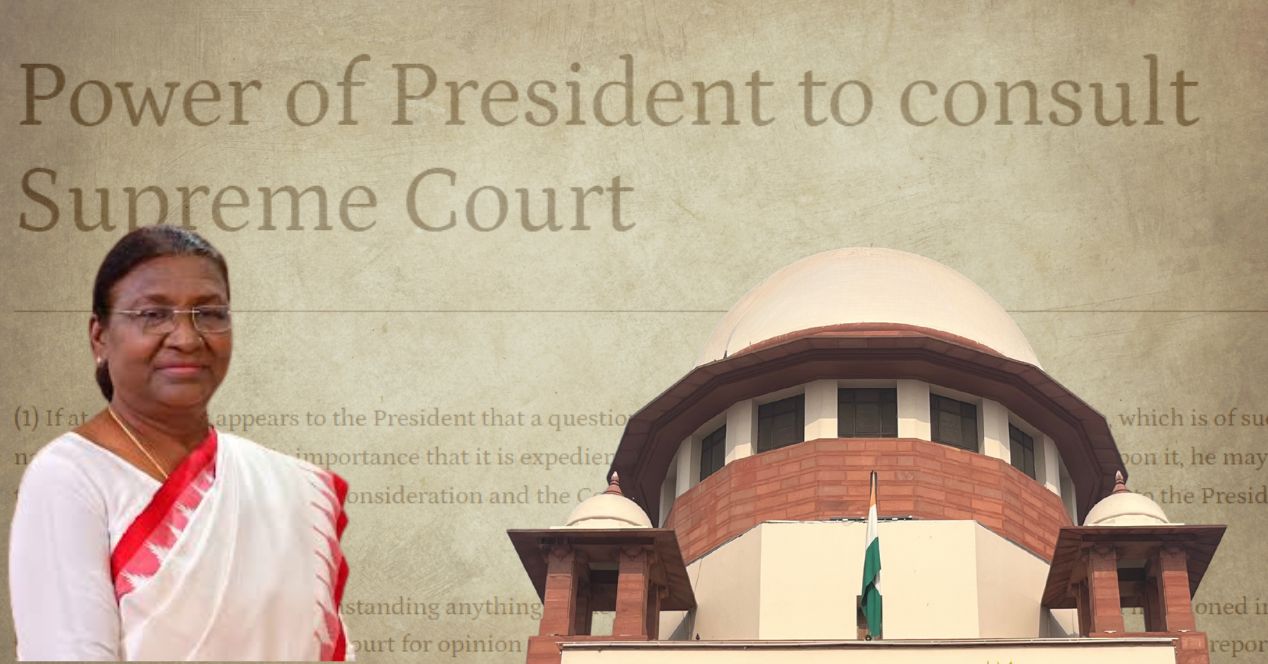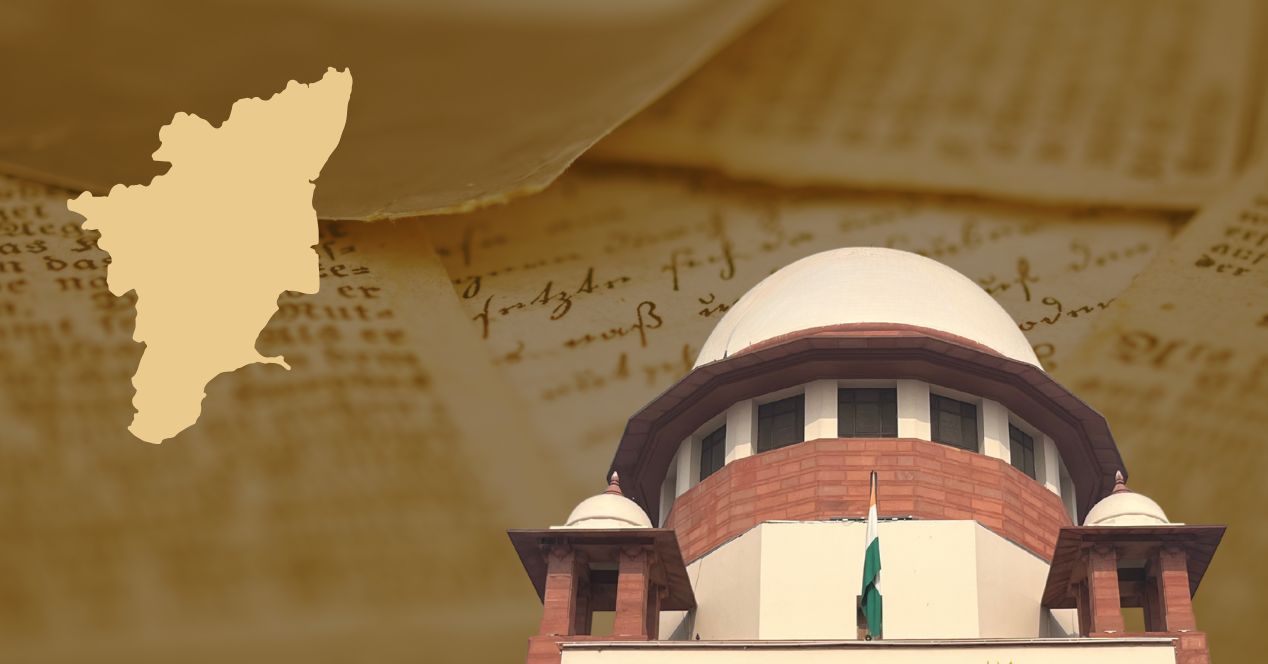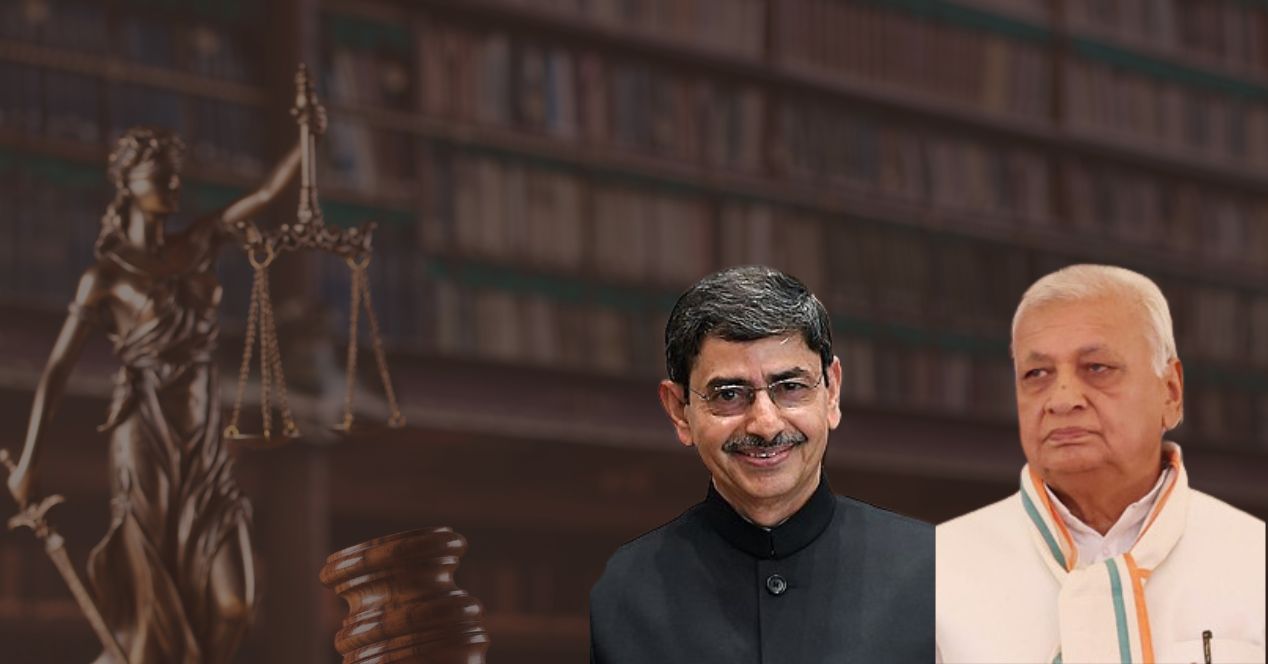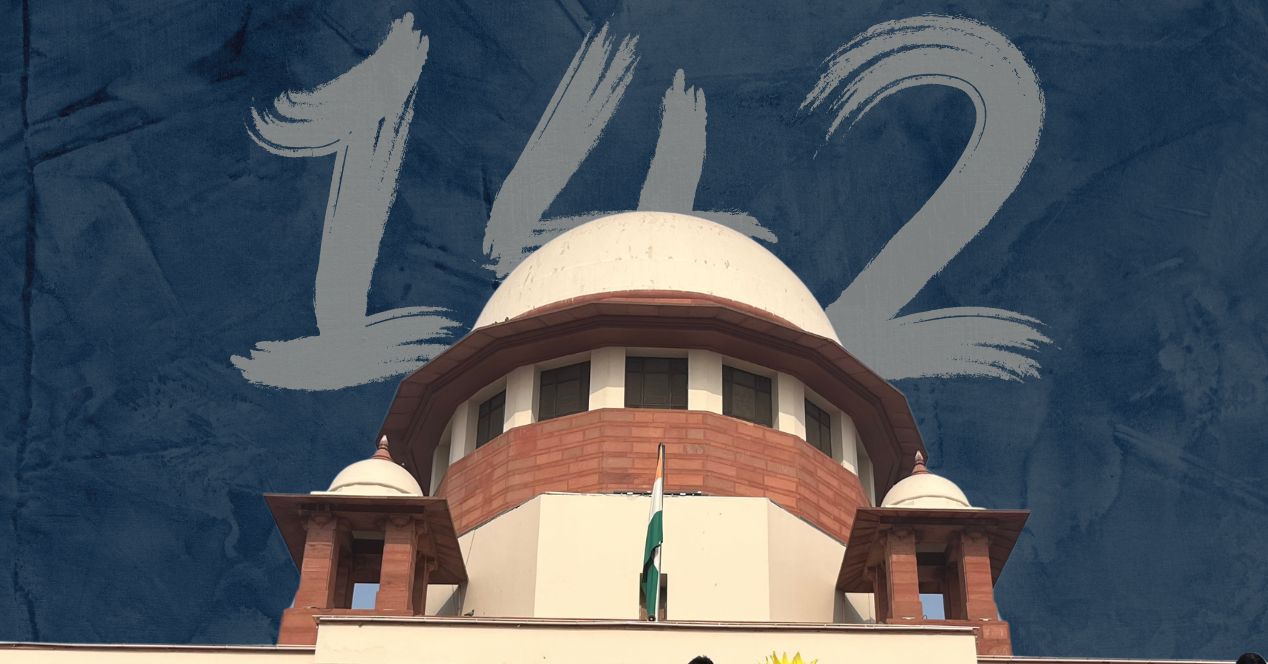Analysis
15 times the President referred questions to the Supreme Court
What kinds of issues have been referred to the SC? When did the SC decline to provide an opinion? SCO’s compilation has all the key details
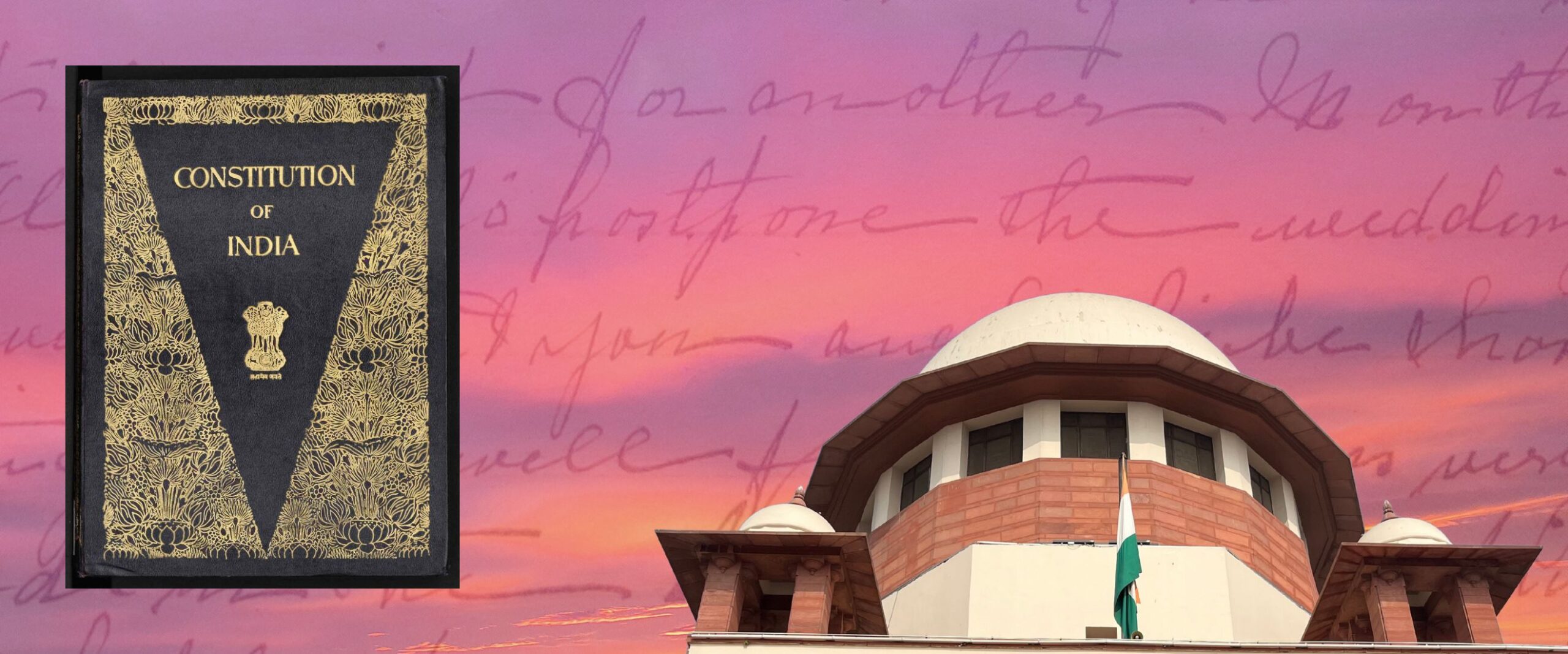
Following the Supreme Court’s judgement in State of Tamil Nadu v Governor of Tamil Nadu, President Draupadi Murmu sought the Court’s advisory opinion—under Article 143—on 14 specific questions related to the scope of the President and Governors’ powers to assent to Bills passed by state legislatures.
The President did not refer to the Judgement in her reference. A look at previous instances suggests that, as a condition for answering the reference, the Court may insist on the executive’s undertaking to be bound by the Judgement and its opinion. As a general rule, the advisory jurisdiction of the Court and its review jurisdiction operate in different fields. But in the 2G case in 2012 (listed at #14 below), the Centre withdrew its review petition against the Judgement to assure the Court of its bona fides in seeking a reference.
The Court has never been inclined to review its judgements while answering references but has been prepared to fine-tune them. Applying this to the present instance, the Court may agree to revise the timelines it stipulated for a Governor and President to grant assent to Bills, but it is unlikely to entirely abandon the timeline direction.
In theory, because they are not adjudicatory, the Court’s advisory opinions are not binding. In practice, however, they have great persuasive value and there is no reported instance of them being flouted or openly disobeyed. The Court expects stakeholders to comply with its advisory opinions, reserving for itself the power to revise or change them in the future.
President Murmu’s recent reference invites our attention to how the Court has answered questions posed to it by the Head of State. In its 75-year history, the Court has received 15 references in exercise of its advisory jurisdiction. We list the details below.
1. In re: The Delhi Laws Act, 1912
Date of opinion: 23 May 1951
Bench strength: Seven judges
President’s questions: Limits to which the legislature can delegate its legislative power
Court’s answers: Though all seven judges wrote separate opinions, they agreed on the following: (a) The legislature cannot delegate its essential functions, which involve laying down the policy of the law and enacting that policy; (b) The legislature can delegate ancillary functions; (c) The Welfare State requires delegation by the legislature. The judges differed on the extent to which the legislature could delegate.
2. In re: Kerala Education Bill, 1957
Date of Opinion: 22 May 1958
Bench strength: Seven judges
President’s Questions: The Kerala Education Bill, 1957, had been reserved by the Governor for the President’s consideration. The questions referred the following questions to the President: (a) whether the Bill conferred an unguided power on the state government to recognise new schools and open higher classes in any private school; (b) whether such power could affect the right of minorities to establish and administer educational institutions of their choice, guaranteed under Article 30(1).
Court’s Answers: The Bill, by making aided educational institutions subject to conditions for the grant of aid, offended Article 30(1). The Court found that the Bill conferred an unguided power on the state government and such power could affect the right of minorities.
Observations on Article 143: (a) The President can refer a question of law that is likely to arise; (b) It is for the President to determine which questions should be referred; (c) The Court cannot go beyond the reference and discuss “doubts” not raised.
3. In re: Berubari
Date of opinion: 14 March 1960
Bench strength: Eight judges
President’s questions: Whether the implementation of an agreement between India and Pakistan relating to the territory of the Berubari Union, located in Jalpaiguri district of West Bengal, required any legislative action.
Court’s answers: Amending the Constitution under Article 368 is sufficient to implement the agreement. Parliament might, if it chooses, pass a law amending Article 3 so as to cover cases of cession of the territory of India in favour of a foreign State and then implement the agreement under the amended Article 3. Parliament chose the constitutional amendment route in the present case.
4. In re: the Bill to amend S.20 of The Sea Customs Act, 1878
Date of opinion: 10 May 1963
Bench strength: Nine judges
President’s questions: Whether the proposed Bill to amend Section 20 of the Sea Customs Act, 1878 and Section 3 of the Central Excises and Salt Act, 1944, was inconsistent with Article 289, which grants immunity to states from certain kinds of Union taxation.
Court’s answers: In a narrow 5:4 majority, the Court held that the exemption in Article 289(1) does not conflict with the power of the Union to regulate trade and commerce. The exemption refers to direct taxes, such as those on property, and not to indirect taxes like duties of customs and excise which are, in essence, trading taxes. Therefore, the Bill was not inconsistent with Article 289.
5. Special Reference No.1 of 1964
Date of opinion: 30 September 1964
Bench strength: Seven judges
President’s questions: The Uttar Pradesh Legislative Assembly committed one Keshav Singh, who was not one of its members, to prison for its contempt. Keshav Singh, through his advocate, challenged his arrest in the Allahabad High Court. A two-judge Bench ordered that he be released on bail. The assembly found that Keshav Singh, his advocate and the two judges committed contempt of the assembly and passed a resolution requiring all of them to be produced before it. The High Court stayed the resolution. The question was whether Keshav Singh, his advocate and the two judges were guilty of contempt of the state legislature.
Court’s answers: Keshav Singh, his advocate and the two judges were not guilty of contempt of the assembly. The assembly is not competent to take proceedings against judges in the exercise and enforcement of its powers, privileges and immunities. The High Court’s stay on the assembly’s resolution was justified. The Court reasoned that the language used in Article 226 confers wide powers on the High Court to issue directions, orders or writs for the enforcement of rights. Since Article 12 defines ‘State’ to include the legislature of states, the power conferred on the High Court under Article 226(1) can be exercised even against the legislature.
6. Special Reference No.1 of 1974 (In re: Presidential Poll)
Date of opinion: 5 June 1974
Bench strength: Seven judges
President’s questions: Whether the electoral college mentioned in Article 54 for the election of the President is to consist only of members of those legislative assemblies in existence at or before the expiration of the President’s term?
If a state assembly was dissolved before the expiry of the term of the President, how and when was the election to fill the vacancy in the office of the President to be held and completed?
Could the President, notwithstanding the expiration of the term, continue to hold office, in the event of the election not being held?
Court’s answers: If a state assembly is dissolved, the members of the dissolved assembly cannot vote in the ensuing presidential poll as they do not fulfil the character of elected members.
The election to the office of the President must be held and completed before the expiration of the term of the incumbent President even though at the time of such election, the legislative assembly of a state is dissolved.
Article 56(1)(c) only applies to a case where a successor President who has been elected has not yet entered office—the President whose term has expired can continue until the new President is sworn in.
Observations on Article 143: The Court accepts the statement of fact set out in the reference. The truth or otherwise of the facts cannot be enquired or gone into. Nor can the Court go into the question of bona fides or otherwise of the authority making the reference. The Court should be unwilling to accept a reference except for good reasons.
7. In re: The Special Courts Bill, 1978
Date of opinion: 1 December 1978
Bench strength: Seven judges
President’s questions: Whether the Special Courts Bill, 1978 or any of its provisions are constitutionally invalid
Court’s answers: Parliament has the power to make laws with respect to the establishment of Special Courts. The Bill’s provision that an appeal shall lie as of right from any judgment or order of a Special Court to the Supreme Court was valid. The Court found no substance in the argument that Special Courts would damage or destroy the constitutional safeguards of judicial independence.
Observations on Article 143: Though it is always open to the Supreme Court to re-examine the question already decided by it and to overrule the earlier view, other courts in the territory of India ought to be bound by the view expressed by the Supreme Court even in the exercise of its advisory jurisdiction.
The Court would be entitled to return the reference by pointing out the impediments in answering it.
The Court rejected the contention that it would be encroaching upon the functions and privileges of Parliament by deciding upon the constitutionality of a Bill.
It also disagreed that the reference would supplant the remedy under Article 32, which enables a citizen to challenge the constitutionality of a law.
8. In re: the Jammu and Kashmir Grant of Permit for Resettlement in (or Permanent Return to) the State Bill, 1980
Date of opinion: 6 November 2001
Bench strength: Five judges
President’s questions: The Bill envisaged the return and permanent resettlement of people who left Jammu and Kashmir after 1 March 1947 and before 14 May 1954 for territory now included in Pakistan. After the assembly resubmitted the Bill returned by the Governor for its reconsideration, the Governor gave assent in 1982. In the meantime, the President had referred the Bill to the Supreme Court for its advisory opinion on whether the Bill or any of the provisions would be constitutionally invalid.
Court’s answers: As the Bill had become an Act way back in 1982, the Court considered it inexpedient to answer the reference. It also noted that even if it were to find the Act unconstitutional, it would be “unable to strike down the Act in this proceeding.” Last month, the Court disposed of writ petitions challenging the Act on the ground that it had never come into force and was formally repealed at the time of the abrogation of J&K’s special status in 2019.
9. In the matter of Cauvery Water Disputes Tribunal
Date of opinion: 22 November 1991
Bench strength: Five judges
President’s questions: Karnataka had issued an Ordinance to nullify an interim Order of the Cauvery Water Disputes Tribunal. It was later made into an Act. The interim Order required Karnataka to ensure that 205 TMC water was available in Tamil Nadu’s Mettur reservoir every year. It directed Karnataka not to increase its area under irrigation. The question was whether the Ordinance was in accordance with the Constitution.
Court’s answers: The Act was beyond the state’s legislative competence. The Tribunal had the power to consider the question of granting interim relief since it was specifically referred to it. The legislature could not set aside a Tribunal’s Opinion inter partes so as to affect the rights and liabilities of the other parties to the dispute.
Observations on Article 143: The President can refer a question of law only when the Supreme Court has not decided it.
10. Special Reference I of 1994 (Dr. M. Ismail Faruqui v Union of India)
Date of opinion: 24 October 1994
Bench strength: Five judges
President’s questions: Whether a Hindu temple or any Hindu religious structure existed on the ground where the Babri Masjid was constructed
Court’s answers: The Court had held Section 4(3) of the Acquisition of Certain Area at Ayodhya Act, 1993, unconstitutional as it abated all pending suits and legal proceedings without providing an alternative dispute resolution mechanism. The Court found the Presidential reference incapable of satisfying the requirement of an alternate resolution mechanism. With the pending suits being revived, the Court found it unnecessary to answer the President’s reference.
11. Special Reference No.1 of 1998 (Third Judges case)
Date of opinion: 28 October 1998
Bench strength: Nine judges
President’s Questions: (a) Whether consultation with the CJI under Articles 217(1) and 222(1) requires consultation with a plurality of judges; (b) whether transfer of a judge can be subject to judicial review; (c) what is the relevance of seniority in making appointments to the Supreme Court; (d) certain doubts about the implementation of the Court’s Judgement in the Second Judges case (1993)
Court’s Answers: (a) Consultation with the CJI means consultation with a plurality of judges in the formation of the opinion of the CJI.
(b) Transfer of puisne judges is judicially reviewable to the extent that it was not a result of consultation with the four senior-most puisne judges of the Supreme Court. The grounds of non-consultation with the Chief Justice of the parent High Court and the transferee High Court and the seniormost Supreme Court judge who has served on the parent High Court can also be cited to justify judicial review.
(c) The size of the Supreme Court Collegium be increased from three to five senior-most judges for recommending appointment of judges to the Supreme Court and for transfers of High Court judges.
(d) The Court recorded at the outset that the Union of India is not seeking a review or reconsideration of the Judgement in the Second Judges Case and that the Union of India shall treat as binding the answers of the Court to the questions in the reference.
12. Special Reference 1 of 2001
Date of opinion: 25 March 2004
Bench strength: Five judges
President’s questions: Whether natural gas is a Union subject and whether the State of Gujarat had legislative competence to enact the Gujarat Gas (Regulation of Transmission, Supply and Distribution) Act, 2001
Court’s Answers: Natural gas is included in Entry 53 of the Union List. Natural gas, in its raw and liquefied form, is a petroleum product and part of the mineral oil resource, which needs to be regulated by the Union. The people of the entire country have a stake in natural gas and its benefit has to be shared. If one state alone is allowed to extract and use natural gas, other states will be deprived of their equitable share.
Under Entry 25 of the State List, the state would be competent to pass a legislation only in respect of gas and gas-works, that is, “any work or industry relating to manufactured gas used for industrial, medical or other similar purposes.” The word ‘gas’ in this Entry takes colour from other words ‘gas-works’. Entry 25 of the State List, therefore, covers only manufactured gas and the state legislature has no competence to enact laws in respect of natural gas. To that extent, the impugned Act is ultra vires.
13.Special Reference No. 1 of 2002
Date of opinion: 28 October 2002
Bench strength: Five judges
President’s questions: Article 174(1) stipulates that six months shall not intervene between the last sitting of one session of a state assembly and the first sitting of the next session. The President sought an advisory opinion because the Election Commission had recommended the imposition of President’s rule in Gujarat, as it was not in a position to hold elections within six months from the last sitting of the assembly.
Is Article 174 subject to the opinion of the Election Commission of India under Article 324 as to the schedule of assembly elections?
Can the ECI draw a schedule for the election on the premise that any infraction of the mandate of Article 174 would be remedied by the President resorting to the Emergency provision in Article 356?
Is the Election Commission under a duty to carry out the mandate of Article 174?
Court’s answers: Article 174(1) relates to an existing and functional legislative assembly and not to a dissolved assembly. Articles 174(1) and 324 operate in different fields and one is not subject to the other. Article 174(1) does not provide any outer limit for holding elections for constituting a new legislative assembly.
Observations on Article 143: The Supreme Court can advise the President in a reference, if the questions referred are likely to arise in future or are of public importance, or if there is no opinion of the Supreme Court which has already decided the question.
The Court is bound by the recitals in the order of reference. It accepts the statements of fact as set out in the reference. It cannot enquire into the truth or otherwise of the facts. The court cannot go into the question of bona fides or otherwise of the authority making the reference. The Court cannot go into disputed questions of fact in its advisory jurisdiction.
In this case, the Court also explained why it had to decline answering references in two previous instances. In Dr. M. Ismail Faruqui v UoI, the Court noted, the reference was “not answered on the ground that it was potentially political.” In In re: Cauvery Water Disputes Tribunal, the Court had declined to answer one of the questions, namely, whether the Tribunal could grant interim relief. In a previous Order, the Court had held that the Tribunal had the power to grant interim relief if it was part of the Union Government’s reference to it. Therefore, answering this part of the Cauvery Water Disputes Tribunal reference would have meant the Court exercising appellate jurisdiction.
14. Special Reference No.1 of 2012 (2G case: Natural Resource Allocation)
Date of opinion: 27 September 2012
Bench strength: Five judges
President’s questions: The primary question was whether the only permissible method for the disposal of all natural resources is through auctions.
Other questions were: (a) If auctions are mandatory, would it be contrary to several judgements of the Supreme Court; (b) Whether the enunciation of a broad principle by the Court amounts to formulation of policy unsettling previous opinions by successive governments; (c) What is the scope for interference by courts with policy-making by the government; (d) If the Court holds that a policy is flawed, is it not obliged to take into account investments made under that policy, including those by foreign investors under multilateral and bilateral agreements?
Court’s answers: Auctions are not the only permissible method for the disposal of all natural resources across all sectors and in all circumstances. In light of the government’s assurance that it is not questioning the correctness of the Judgement in the 2G case, the Court declined to answer the remaining questions.
Observations on Article 143: While entertaining the reference, the Court analyses the principles enunciated in the earlier judgement and also makes certain modifications, without changing the ratio. For the purpose of the validity of a reference, dwelling upon an earlier judgement is permissible.
The filing and withdrawal of a review of the judgement would not be an embargo or impediment for the exercise of the Court’s discretion to answer the reference.
There is no constitutional embargo against reference to earlier opinions in order to clarify, restate or even to form a fresh opinion on a principle of law, as long as an inter partes opinion is left unaffected.
15. In re: The Punjab Termination of Agreement Act, 2004
Date of opinion: 10 November 2016
Bench strength: Five judges
President’s questions: The State of Punjab enacted the Punjab Termination of Agreement Act, 2004, terminating the 1981 Agreement among Punjab, Haryana and Rajasthan to reallocate the waters of the Ravi and Beas rivers. The President had doubts about the Act’s validity.
Court’s answers: The dispute between Punjab and Haryana was referred to the Inter-State Water Tribunal. The Tribunal’s Opinion was disturbed by the Punjab Act. A litigating person cannot become a judge in their own cause. Once a binding decree is passed by a court, a party to the litigation cannot unilaterally act in a manner to nullify the effect of the decree. Hence, the Act cannot be considered to be valid. Punjab cannot absolve itself from its duties or liabilities arising out of the 1981 Agreement.

